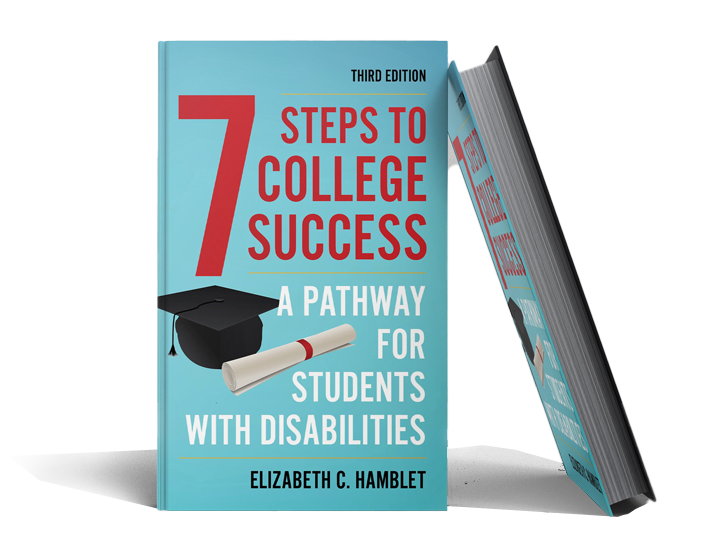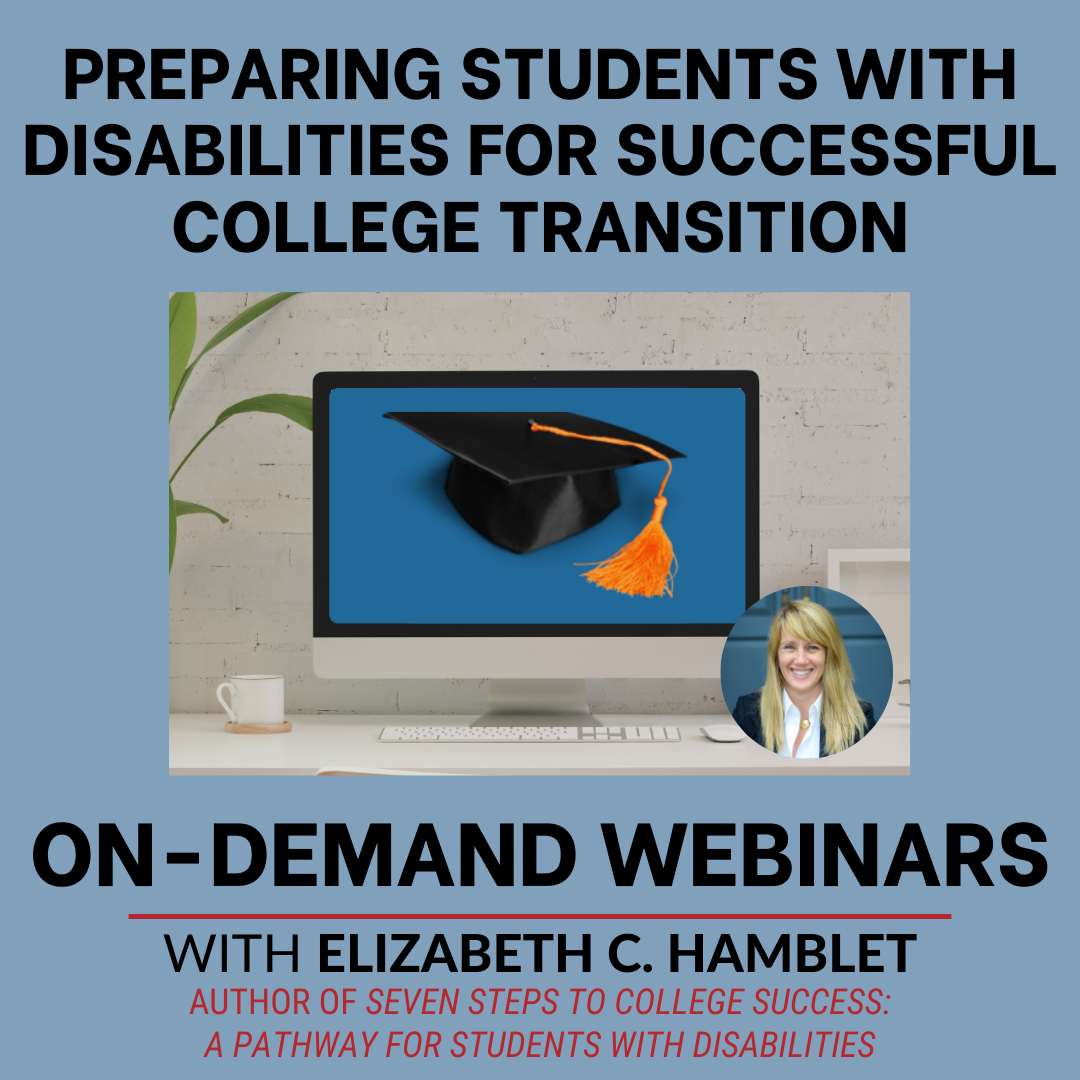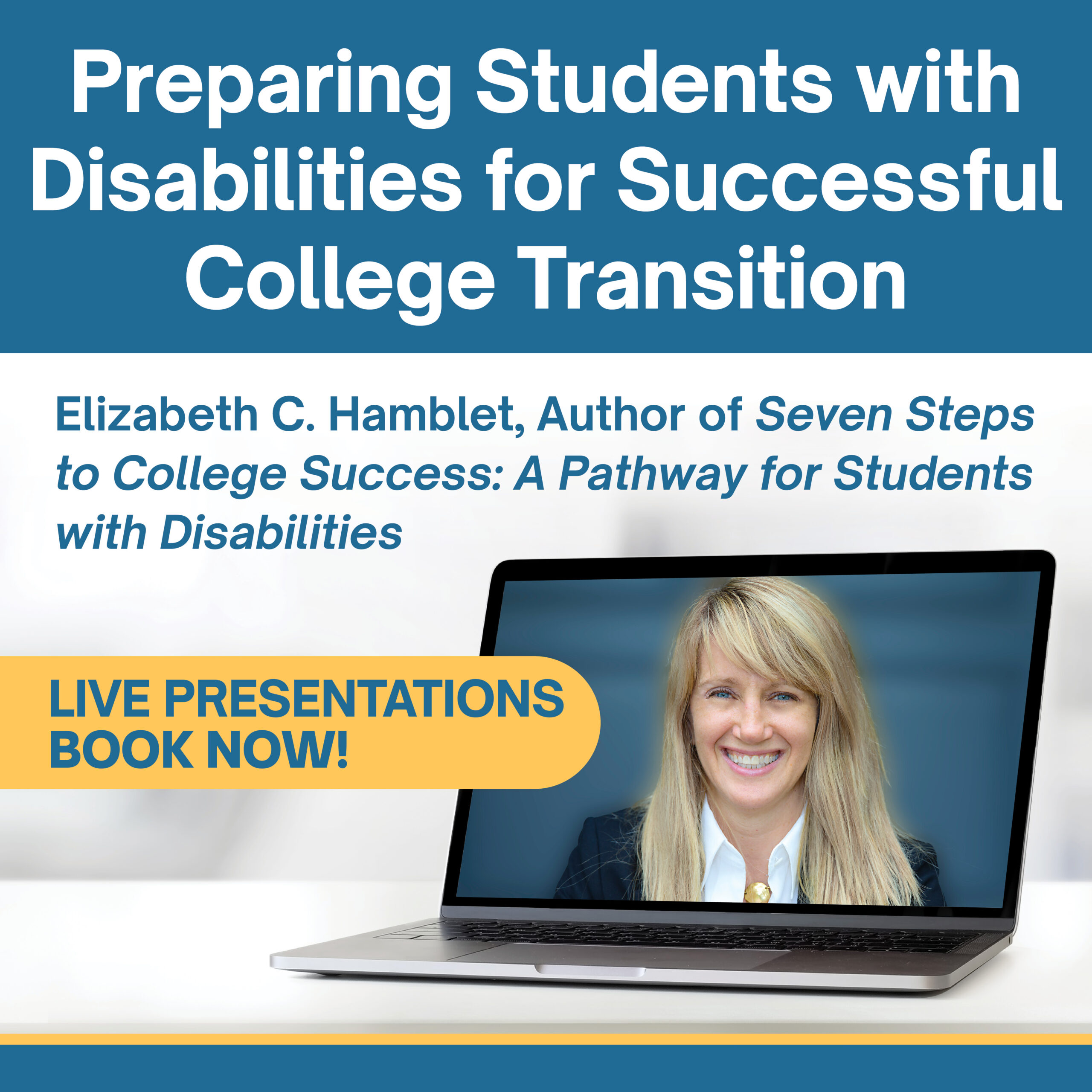Introduction
College transition can be a challenge for all students – the environment is largely unstructured and the academic demands are increased. Since college is an academic environment, the shift there may be even more challenging for students with learning disabilities and/or ADHD than for some of their peers. But they can be successful there, and the proper preparation can help make for a smooth transition.
When I was developing my book, I asked disability services directors at a variety of kinds of institutions what high school teachers, case managers, administrators, psychologists, and other professionals can do to help students get ready for college.
Jamie Axelrod is the Director of Disability Resources at Northern Arizona University
Help students identify where they want to go and the right places to reach out to on those campuses.
Offices may be named different things, and on some small campuses, people have multiple roles.
Assist students in finding that information and encourage them to look at those offices to ask questions and engage with the staff there.
Ann Knettler was Director of the Center for Disability Services at Delaware State University at the time of her interview
It’s important to be clear in telling students that their IEP and 504 plan doesn’t carry over to college. Some students come in with an IEP or 504 plan and they think they’ll get everything written into it.
Or worse – some students think someone else (the high school?) will take over registering them with our office, and they never realize they need to complete the process.
Sometimes, I don’t see students until finals, or even after grades are posted. At that point, they can start the process of registering and have accommodations in place for next semester, but accommodations aren’t retroactive, meaning we don’t go back and “fix” their grades because they didn’t have accommodations before. Make sure to tell them they have to take care of this themselves.
Also – most of the IEPs we see don’t have the documentation we require. Let them know that they need to check on this before they come to college. [Learn how students can find their college’s documentation requirements.]
To that end – I think high school professionals in the schools should advocate for students to get updated testing. If they haven’t been tested since the beginning of middle school, say something. You might not be popular with your district’s budget office, but you can help students by doing this.
Deborah Braswell was Director of Disability Support Services at University of Montevallo at the time of her interview
Reach out to your nearest universities and find the DS folks and ask if they’re willing to chat with you. Or even better – ask if they would set up an in-service program for your case management staff, transition staff, and maybe even faculty teaching juniors and seniors. Those DS providers can give a little better insight into what it’s like for students using accommodations in the college environment.
Sometimes accommodations that seemed reasonable (whether they’re coming from psychologist’s office or high school) may not be fully realized in the college classroom because they aren’t aligned with how our faculty teach.
For instance, sometimes professionals recommend allowing students to get syllabus and books a month early. The syllabus might not be finalized until a few days before classes start, so it may not be possible to get all of the reading assignments that far in advance. So I think it’s a good idea for professionals to know about the kinds of accommodations we grant so they can make realistic recommendations.
Margaret Camp is at Director of Student Asscessibilty Services at Clemson University
It’s important to be informed about college expectations and what the accommodation landscape looks like, how laws are different – the focus on access is different. It can go a long way to bridging the gap students fall into. Some of the accommodations provided at the high school level end up being a disservice to students because they’re not prepared when they get to college. It creates an additional barrier.
Accommodations are supposed to remove barriers, but accommodations like the ability to take tests over and over again or extended deadlines for assignments are more about success than access, and they’re not typically available at college. So moving away from those kinds of supports at college actually creates an additional barrier for students who are used to having them.
Paul Harwell is Associate Director of ADA and 504 Compliance at Dartmouth College
Reach out to us. We find high school professionals asking Admissions questions about what we do. We’re happy to answer those ourselves.
Catherine Getchell is Director of Disability Resources at Carnegie Mellon University
Encourage families to shift the responsibility of managing accommodations over to the student during high school, and counsel families on why this is so important, since they don’t always understand this until their student goes away to college and suddenly the school is communicating with the student, not the parent. This is often a very jarring change for the parent, but it doesn’t have to be if high schools prepare families for this transition.
Eric Trekell was Director of the Center for Disability Services at Everett Community College at the time of his interview
Start working for independence. I think some school districts think they’re accomplishing that by moving students from an IEP to a 504 plan. [Neither IEPs nor 504 plans are valid after high school. Learn more.]
But sometimes I see 504 plans that are full of modifications and services that we don’t provide at the college level, so the 504 isn’t really getting students prepared to come to college.
Jorja Waybrandt was Coordinator of Accessibility Services at the University of North Carolina School of the Arts at the time of her interview
Keep in mind that those who are identified and served via a 504 typically do not receive Transition Services; they’re typically only provided to students who receive IEPs only. Therefore, thousands of college-bound students with disabilities graduate from high school each year without anyone explaining the disability services process to them.
They don’t know the process for requesting and receiving accommodations in college. They may not know where to go or who to inquire of for information. They also don’t know what is provided. Take time to share valuable transition information with all students with disabilities, including students with 504 Plans.




